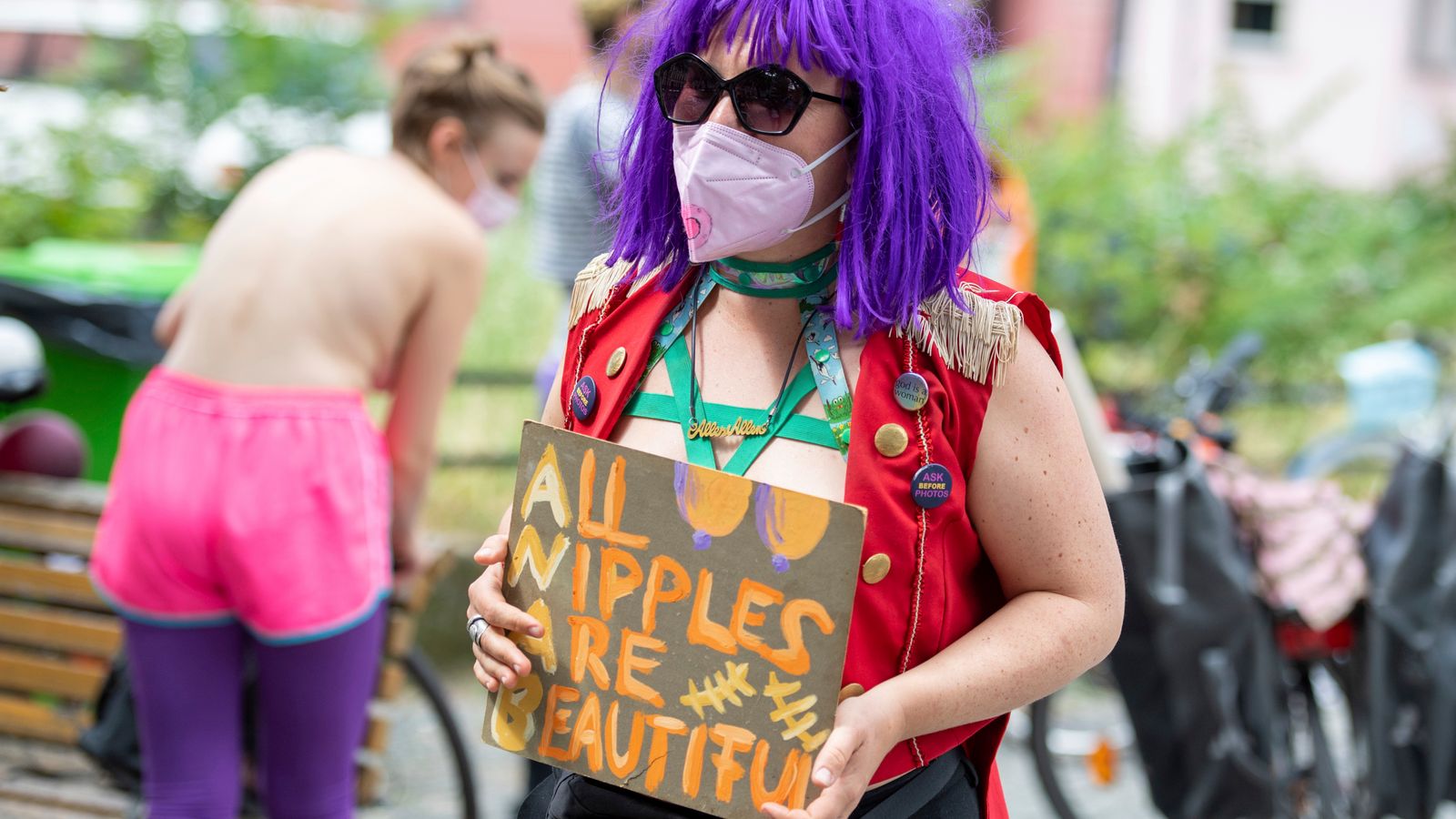Facebook and Instagram could be about to “free the nipple” after owners Meta’s oversight board said nudity rules on the sites should be overhauled.
The board said in a ruling that Meta needed to change its adult nudity policy to make it more inclusive.
It said the company’s existing policy is based on a binary view of gender, making it unclear how the rules apply to intersex, non-binary and transgender people.
The free the nipple campaign started more than a decade ago, following a film of the same name made in 2012 which led to protests demanding the right for women to bare their breasts both online and off.
Conversations about trans bodies and gender fluidity have added nuance and complexity to the discussions, and it’s on this point that Meta’s oversight board has intervened.
The board overturned Meta’s previous decisions to remove two Instagram posts from a US-based couple who identify as transgender and non-binary.
In the photos, the couple are bare-chested with their nipples covered. The captions discussed transgender healthcare and explained the couple were fundraising for one of the pair to undergo top surgery (gender-affirming surgery to create a flatter chest).
The posts were flagged by Meta’s systems, as well as by reports from users, and were removed for violating the Sexual Solicitation Community Standard, “seemingly because they contain breasts and a link to a fundraising page”, according to the decision.
The users appealed against the removal and Meta ultimately restored the posts.
Read more on Sky News:
Microsoft to axe thousands of jobs
Meta fined for forcing users to agree to personalised adverts
Five big tech stories to watch in 2023
‘We know more can be done’
Meta’s existing policy prohibits images containing female nipples other than in specified circumstances such as breastfeeding and gender confirmation surgery.
The board called the rules around female nipples “extensive and confusing, particularly as they apply to transgender and non-binary people”.
It added that “this creates confusion for users and moderators and, as Meta has recognised, leads to content being wrongly removed”.
The board found Meta’s policy on its social platforms was “based on a binary view of gender and a distinction between male and female bodies” which “makes it unclear how the rules apply to intersex, non-binary and transgender people”.
It said Meta should change its approach to managing nudity “by defining clear criteria… which ensure all users are treated in a manner consistent with human rights standards”.
The oversight board, which includes academics, rights experts and lawyers, was created by the company to rule on a small selection of thorny content moderation appeals, but it can also advise on wider site policies. The board is funded by Meta but operates independently.
A spokesperson for Meta said the company had recognised the content posted by the US-based couple should not have been taken down prior to the board’s report and welcomed its decision.
In a statement, Meta said: “We are constantly evaluating our policies to help make our platforms safer for everyone. We know more can be done to support the LGBTQ+ community, and that means working with experts and LGBTQ+ advocacy organisations on a range of issues and product improvements.”






















